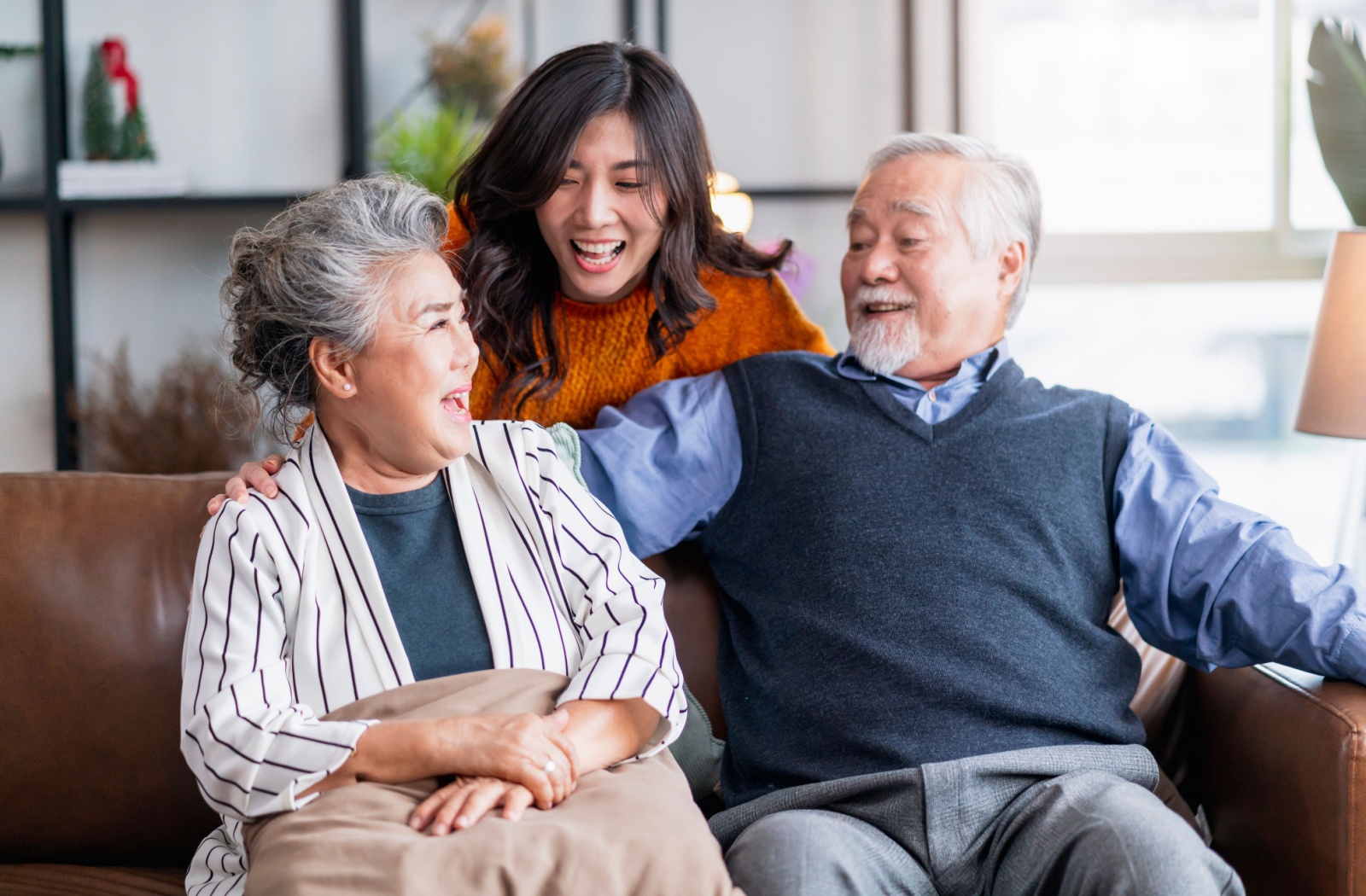Surveys show that 85% of people want to age at home, but often the family environment either cannot or does not want to take on the burden. How can this situation be managed in the most satisfactory way for everyone involved?
Before moving into a nursing home, Isabel Aires’ mother, a Madrid-based businesswoman, spent nearly a year and a half receiving care at home. She could barely see, had to go to dialysis three times a week, and, after a hip operation, walked with a limp. “She managed terribly at home,” Isabel admits. With her children already independent, the initial solution was to hire a caregiver to assist her at home. But after “trying out five different people and not clicking with any of them,” Isabel eventually decided her mother needed to move to a nursing home. “She was the first to conclude it was for the best,” Isabel recalls. Yet, she adds, “The day I left her there was one of the worst days of my life. She never adjusted. She stayed alone in her room watching TV, didn’t want to interact with the other residents or join activities. She didn’t like the food there either, so every week I’d bring her a dish I’d made, just to give her that small bit of comfort. My mother didn’t have a positive or adaptable personality, and there, with her age and illness, it only got worse.”
“The day I left my mother at the nursing home was one of the worst of my life. She never adapted.”
Isabel Aires, Businesswoman
Indeed, for older adults at an advanced age, dependency becomes inevitable. The dilemma faced by children—whether to opt for a caregiver at home or seek a nursing home—is all too common. Although surveys overwhelmingly favor one option—85% of people want to age at home, according to the study We All Want to Age at Home: As Long as Possible and with Technology’s Help?—this preference is also supported by the Qualitative Research on Diagnoses and Action Plans for Age-Friendly Cities and Communities, presented by Imserso in collaboration with the Aging Research Group (GIE-CSIC) of the CSIC.

But is staying at home always the best solution for the dependent person? More importantly, is it the most suitable option during the 10 years that, according to Eurostat, someone over 65 is expected to live with “limited activity,” meaning reliance on others? This situation is only set to increase with the aging population.
“As sons and daughters, we patch up the holes. We don’t usually consider a nursing home as soon as we notice the first signs of declining autonomy.”
Adolfo Santiago, Clinical Assistant
It’s natural for families to be overwhelmed with doubts about the best way to ensure their loved one’s well-being. These questions tend to resolve themselves as needs arise. “As sons and daughters, we patch up the holes. We don’t usually consider a nursing home as soon as we notice the first signs of declining autonomy in our parents,” says Adolfo Santiago, a clinical assistant. In his case, “a highly invasive surgery with a necessarily slow recovery” forced the decision to place his father in a nursing home. Still, he’s certain: “It probably would’ve happened eventually anyway.”
“Even though families might feel like they’re just putting on Band-Aids, it’s really a process with different stages, each requiring its own response,” explains Laura Masot, a psychologist and coordinator of Social Referrals at Qida, a home care company. Beyond financial considerations, she argues the decision doesn’t always have to be framed as “a dichotomy between home care and a nursing home. I always encourage the gray areas because extremes aren’t always the answer,” she says, suggesting a mix of home care, day centers, and short nursing home stays.
“It doesn’t always have to be framed as a dichotomy between home care and a nursing home.”
Laura Masot, Psychologist and Coordinator of Social Referrals at Qida
Times Change, So Do Care Needs
This all-too-common situation has become “a tough and complex issue to tackle. It’s multifaceted, with nuances balancing people’s needs and respect for their decisions,” says Luis Agüera, head of the psychiatry section at the University Hospital 12 de Octubre in Madrid. It’s a complicated matter because, for one, “people now live much longer, so we’re facing challenges that didn’t exist before,” he explains.
“Fifty years ago, people didn’t live as long, and family structures were different. Now, society is what it is: everyone works, and caregiving as it once was—typically provided by the female family member—is no longer feasible. That’s just how it is, and we can’t change it,” continues this psychogeriatrics expert.

“Some sons or daughters say they’d never take their mother to a nursing home, yet she’s getting worse quality of life than a nursing home could provide.”
Luis Agüera, Head of Psychiatry at University Hospital 12 de Octubre
For Agüera, the guiding principle seems clear: “The dependent person should live where their needs are best met,” he says. Laura Masot adds a critical step: “We can’t ignore asking, listening, and considering the opinion or wishes of the person in a dependent situation,” she advises, while also stressing the need for balance between the dependent person’s needs and those of their environment. “Total concession on either side won’t work,” she notes.
Agüera agrees, emphasizing the importance of balancing empathy and love for one’s parents with the efficiency of securing the best care for them. “Some sons or daughters say they’d never take their mother to a nursing home, yet they’re in a caregiving situation that’s far from optimal. The care they provide doesn’t meet the person’s needs, and she ends up with a worse quality of life than a nursing home could offer.”
Resistance to Help and Feelings of Guilt
Undoubtedly, the biggest hurdle is the dependent person’s resistance to accepting they can no longer manage alone. Luis Agüera confirms this: “In people with cognitive decline, there’s a phenomenon called anosognosia—a kind of denial mechanism. They’re not fully aware of their mistakes or forgetfulness. They might notice small errors but not the extent of their deterioration.”
This refusal to accept a stranger living in their home or professional care in a nursing home often softens with time. “It requires a transition, and that needs to be understood,” Agüera points out. This ties into a psychological need during aging: “maintaining their identity, that role of homemaker or manager of their own problems.”
“It’s part of our inner emotional world to feel we must do everything possible for our father or mother…”
Luis Agüera, Head of Psychiatry at University Hospital 12 de Octubre
“The day I left my mother at the nursing home was excruciating. I felt guilty the entire time she was there. Every time I called, she’d tell me how alone she felt. She was more accompanied and cared for than at home, but she’d never felt lonelier,” Isabel shares. She continues: “If I could go back to when I made that decision, but with my current life circumstances, I’d probably have her living with me, adapting everything to her needs instead of sending her to a nursing home.”
Her story is far from unique and, as Agüera notes, “something inherent to being human.” “It’s part of our inner emotional world to feel we must do everything possible for our father or mother… But guilt can be overcome when faced with reality and realizing you can’t do it all. Sometimes, that guilt actually prevents getting the best care,” the psychogeriatrics expert concludes.









